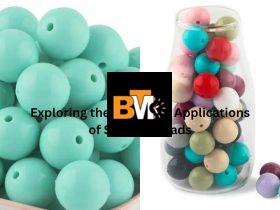As e-commerce continues to grow globally, businesses are increasingly turning to custom solutions to meet their unique needs and stand out in a competitive online marketplace. Whether you’re a small business just starting out or an established brand looking to optimize your online store, choosing the right e-commerce custom brokerage service is crucial to your success.
This decision impacts everything from your customers’ shopping experience to your backend operations. In this post, we will share key tips for selecting the best custom e-commerce platform tailored to your business’s needs.
1. Understand Your Business Goals
Before diving into the specifics of e-commerce platforms, it’s essential to understand your long-term goals. What are you hoping to achieve with your online store? Whether you’re focusing on improving user experience, streamlining order processing, or expanding your market reach, defining your goals will help you identify the right features and functionalities that align with your business objectives.
For example, if you’re looking to scale your business and handle high traffic volumes, you’ll need an e-commerce solution that’s designed for growth and scalability. If your goal is to enhance customer personalization, your platform should offer advanced customization features, allowing you to deliver a tailored shopping experience.
2. Consider Your Product Type and Industry
Not all e-commerce solutions are created equal, and the type of products you sell and the industry you’re in will significantly influence the features you’ll need.
- Physical Products: For businesses selling physical products, you’ll need a platform with strong inventory management, integrated shipping tools, and tax and customs handling capabilities.
- Digital Products: If you’re selling digital goods such as e-books, software, or downloadable content, ensure the platform supports digital delivery options, subscription models, and secure payment gateways.
- Niche Market: If your business operates in a niche market or requires specialized features (like a custom product configurator or subscription service), look for platforms that offer robust customization options.
For companies specialized in e-commerce customs brokerage solutions, finding a solution that integrates with logistics tools and supports multi-country shipping and taxation systems is essential.
3. Scalability and Flexibility
Your business will evolve over time, and so should your e-commerce solution. When selecting a platform, ensure that it can grow with you. Scalability is a key factor to consider—your platform should support increased traffic, product offerings, and sales volume without compromising speed or user experience.
Flexibility is also essential. Choose a platform that allows you to make changes to your website, integrate third-party tools, and adjust features as your business needs shift. Custom e-commerce solutions should give you the freedom to innovate and experiment with new business models without being restricted by the platform.
4. Integration with Other Tools and Systems
E-commerce doesn’t exist in a silo; it must connect seamlessly with other systems in your business, such as your inventory management software, customer relationship management (CRM) tools, and payment gateways.
For instance, if you’re running a business that handles customs and imports, like Clearit Canada, integrating your e-commerce platform with customs clearance systems and logistics software can streamline the import/export process. This ensures that your customers’ orders are processed without delays, and all relevant customs paperwork is handled correctly.
Look for platforms that offer easy integration with third-party applications and APIs to ensure your operations run smoothly.
5. User Experience and Design
Your website’s design plays a vital role in attracting and retaining customers. A good user experience (UX) is a critical factor in e-commerce success. A custom solution should provide an intuitive and user-friendly design that makes it easy for customers to navigate, search, and check out.
- Mobile Optimization: With the rise of mobile shopping, ensure your e-commerce platform is responsive and optimized for mobile devices.
- Custom Themes: Choose a platform that allows you to design a unique storefront with your brand’s aesthetics. You should be able to customize everything from colors and fonts to page layouts.
An excellent user experience keeps customers returning to your online store, thus increasing your chances of generating repeat sales and building brand loyalty.
6. Security Features
As an e-commerce business, handling sensitive customer data is a responsibility that cannot be taken lightly. Security should be a top priority when selecting your platform. Make sure your chosen solution offers robust security features such as:
- SSL Certification: Ensures that your website is secure for processing payments and customer information.
- PCI Compliance: Ensures that your platform meets the security standards required for processing credit card transactions.
- Data Protection: Look for features that protect customer data, especially if you’re handling international sales and cross-border transactions.
7. Support and Customer Service
E-commerce platforms should offer reliable customer support, especially when you’re dealing with technical issues or need assistance with a feature. Look for platforms that provide 24/7 customer support and offer a range of support options, including live chat, phone support, and online documentation.
You may also want to consider the size and expertise of the support team. A dedicated support team will ensure your questions are answered quickly and you get the assistance needed to keep your store running smoothly.
8. Cost and Pricing Structure
Cost is always a consideration when choosing an e-commerce platform, but it should not be the only factor. Evaluate the overall value your platform provides, including all features and functionalities you need, and compare them with the pricing.
Some platforms charge a flat monthly fee, while others charge transaction fees or offer tiered pricing based on usage. Ensure you understand the cost structure and that it aligns with your business’s budget and projected revenue.
Conclusion: Streamline Your E-Commerce Experience with Custom Solutions
Choosing the right e-commerce custom solution is a significant decision that will impact your business operations and customer experience. By evaluating your business goals, understanding your product type, ensuring integration with other tools, and focusing on user experience and security, you can find the perfect platform to support your growth.







Leave a Reply